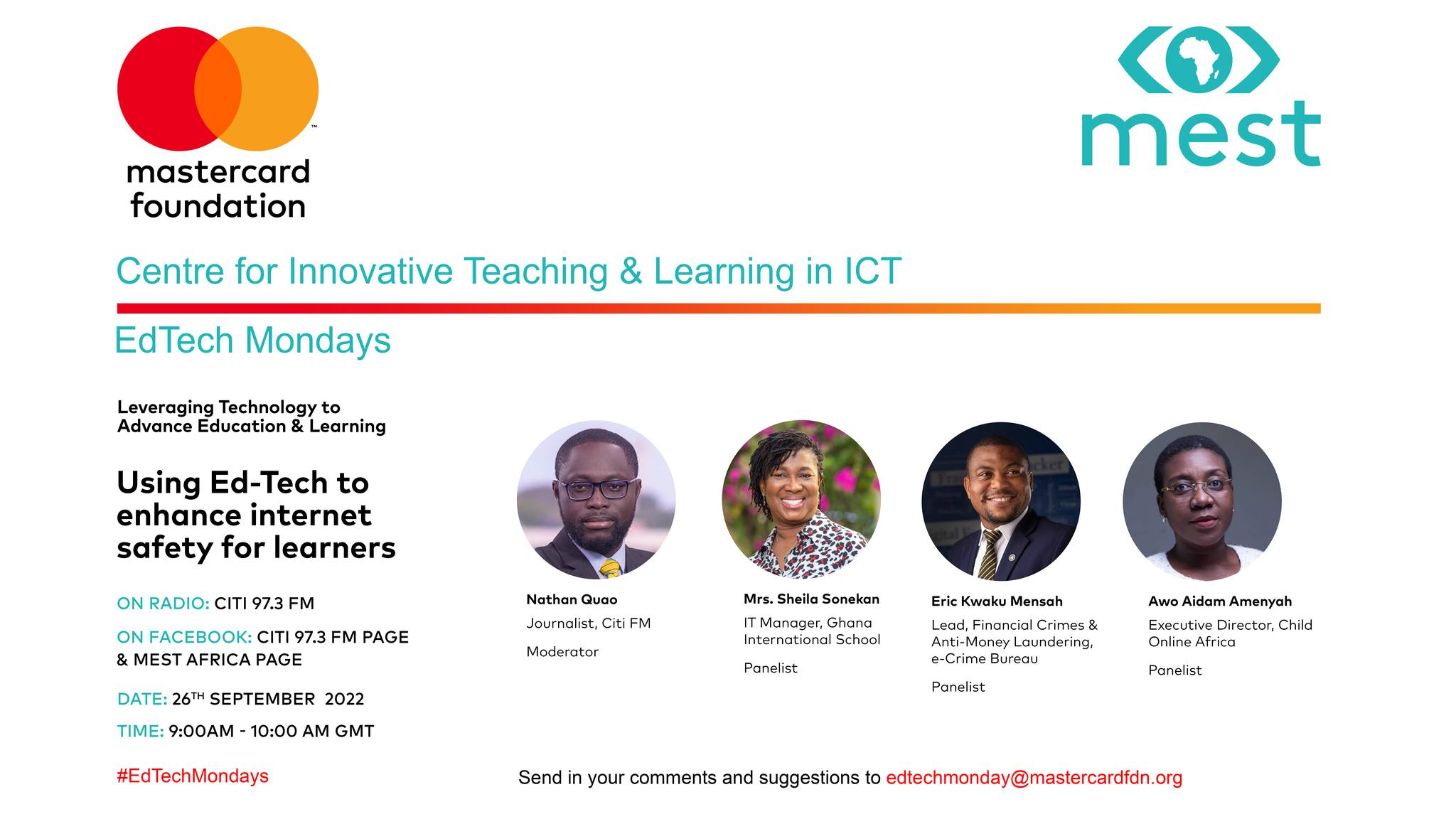The increased digitization of information and education systems is making online activity a normal part of everyday life.
As more young people use online learning platforms, parents, teachers and school administrators are increasingly concerned about the safety of children whilst online.
On the September 2022 edition of Edtech Monday, discussions centered on internet safety for learners at home and in school to avert cyber threats or attacks.
Awo Aidam Amenyah, Executive Director, Child Online Africa – a child and family-focused charity working in Ghana and beyond through strategic partnerships, said:
“It is a reality that parents do not think that there are enough systems to protect the child. Children are impressionable and tech-savvy, but they are unable to tell what not to do. It is important parents do the handholding. Such conversations are really important, parents must communicate with the children and identify the devices and services that are being used so that, some of these things are controlled”, she stressed on Edtech Monday on the Citi Breakfast Show.
The adoption of e-learning technologies in Africa continues to grow, with reports indicating that the e-learning market in Africa is expected to grow at a compound annual growth rate of 11.2% during 2022-2027.
This growth has been catalysed by the proliferation of smartphones and other consumer electronics in the region, along with the rising digitalization in the education sector.
This increased integration of ICT into education has raised some concerns among parents, teachers, and school management regarding the dangers the internet poses to learners as they increasingly adopt technology in learning.
“Parents can blacklist URLs that they do not want their children to go on. It’s very important. Parents can also have alerts telling them what their children are doing at any point in time. There are softwares that can help parents to control their children online. Another thing is to link your child’s account to the parent’s account and have two-factor verification on the accounts of their children and activate it on their account while visiting sites their children visit”, says Mrs. Sheila Sonekan, IT Manager, Ghana International School.
These dangers include cyber-bullying, online predators, identity thieves, and inappropriate content among others. Moreover, young learners may not always think about the consequences of their actions, which could cause them to share too much information about themselves.
As a result, there is a need to understand the risks and threats to young learners online and how to recognize and mitigate them (protection mechanisms).
This includes the legal and ethical requirements placed on teachers to keep students and their information safe and secure; strategies for making classrooms safe and secure for students’ online activities; and the role of parents and caregivers in protecting their children as they study online.
For Eric Kwaku Mensah, Lead, Financial Crimes & Anti-Money Laundering, e-Crime Bureau, “it is important for schools to create policies on how to use the computer or the internet. This is key. Teachers must also tell students about online privacy and how not to share information. Schools must also create a cyber bullying reporting system and promote honest and open conversations. If we are able to do this, we are able to safeguard the well-being of children.”

EdTech Mondays is an initiative of the Mastercard Foundation’s Regional Centre for Innovative Teaching and Learning in ICT and part of the Foundation’s strategy to find solutions to Africa’s youth employment by closing the gap in access to quality education, and advancing the integration of technology in education policies and practices across Africa.
To realise this vision in Ghana, the Mastercard Foundation has partnered with MEST Africa, a pan-African technology institution to bring EdTech Monday, on the last Monday of every month.
About MEST
MEST offers Africa-wide technology entrepreneur training, internal seed funding, and a network of hubs providing incubation for technology startups in Africa.
Founded in Ghana in 2008, MEST provides critical skills training, funding, and support in software development, business, and communications to Africa’s tech entrepreneurs. Hubs are located in Accra, Ghana; Lagos, Nigeria; Cape Town, South Africa; and Nairobi, Kenya.
To date, MEST has trained over 500 entrepreneurs from across the continent and invested in over 80 startups across industries from SaaS and consumer internet, to eCommerce, Digital Media, Agritech, Fintech and Healthcare IT.
MEST is primarily funded by the Meltwater Foundation, the non-profit arm of Meltwater, a global leader in media intelligence and Outside Insight.


